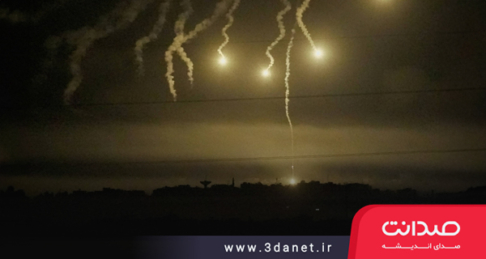
جنگ حماس و اسرائیل: یک تحلیل اخلاقی
حسین دباغ
*برای بلاگ انجمن فلسفی آمریکا
ارائه یک تحلیل جامع از جنگ و نزاع درازدامن بین اسرائیل و حماس متضمن در نظر آوردن عوامل تاریخی و سیاسی در کنار ملاحظات فلسفی و اخلاقی است. بروز خشونت آشکار از هر دو سو به اختلاف نظرهای بنیادین در مورد ماهیت عدالت و دولت، مشروعیت مقاومت در برابر اشغالگری، و شاید مهم تر از بقیه مفهوم “قربانی بودن” بر میگردد.
حماس فلسطینیان را قربانی سرکوب استعماری میداند و مقاومت خشونت آمیز خود را به عنوان ابزاری برای مقابله موجه میپندارد. در مقابل، اسرائیل نیز یهودیان را قربانی ظلم سیستماتیک تاریخی میداند و اشغال غیرقانونی و گسترش قلمرو خود را توجیه میکند.
حقوق بینالملل بشردوستانه چارچوبی معقول برای ارزیابی رفتار طرفهای دخیل در جنگ ارائه میکند. در حالی که این چارچوب، یک مبنای قانونی برای ارزیابی خصومت ها فراهم می کند، بررسی اخلاقی آن حقایق مهمی را آشکار میکند. جنگها نه تنها قساوتهای بیشماری را آشکار میکنند و افراد بیگناه بسیاری را به قربانی میگیرند، بلکه برخی مفاهیم مهم اخلاقی را نیز قربانی میکنند. یکی از این مفاهیم که عموما در میان جنگها نادیده گرفته میشود مفهوم «بیگناهی» است.
جنگها اغلب از اختلافات ریشهدار، ایدئولوژیهای متفاوت یا اختلافات سرزمینی ناشی میشوند، با این حال حقوق بینالملل بشردوستانه تلاش می کند در میان تمام اختلافات بر جهانی بودن کرامت انسانی و ارزش ذاتی انسان صحه بگذارد و رشتهای از انسانیت مشترک را میان دو طرف درگیر در جنگ برقرار نگاه دارد. این پیوند مشترک بهویژه در هنگامه خصومتها مهمتر هم میشود وقتی ذیل این چارچوب تمایز بین نظامیان و غیرنظامیان جدی انگاشته میشود. این تمایز فراتر از یک امر استراتژیک یا تاکتیکی صرف است؛ یک ادعای اخلاقی است که “بی گناهی” کسانی را که مستقیماً در خصومت ها شرکت نمیکنند، تأیید می کند و بر حق اخلاقی و قانونی آنها تأکید. اما آیا تصور روشنی از اینکه چه کسی بی گناه است وجود دارد؟
تحلیل مفهوم «بی گناهی» و تشریح مصادیق آن در جنگ یک چالش عمیق فلسفی است. این چالش جدیتر هم میشود وقتی شخصیتهایی مانند اسامه بن لادن بیان میکنند که شرکت در انتخابات و رای دادن می تواند یک فرد را شریک جرم و در نتیجه از «بیگناه» بودن خارج کند. بن لادن در نامه سرگشاده خود به مردم آمریکا (۲۰۰۲) استدلال می کند که مردم آمریکا با انتخاب دولت مرکزی از ظلم اسرائیل به فلسطینیان، اشغال سرزمینشان و کشتار، شکنجه، مجازات و اخراج مستمر فلسطینیان حمایت میکنند و به همین دلیل است که آنان از همه جنایاتی که آمریکاییها و یهودیان علیه مسلمانان مرتکب شدهاند مبرا نیستند. به معنای دیگری، گویی افراد با شرکت در انتخابات می توانند به هدف مشروع جنگی تبدیل شوند.
اسامه بن لادن در این تفسیر تنها نیست. خاخام دیوید کرشنر (۲۰۱۴)، رئیس سابق هیئت خاخامهای نیویورک، به طور مشابه بیگناهی شهروندان فلسطینی کشته شده توسط نیروهای اسرائیلی را انکار میکند. او در عوض مدعی است که آنان اهداف مشروع جنگی هستند، چرا که از طریق یک فرآیند انتخاباتی، خود را با یک “سازمان تروریستی”، یعنی حماس، همسو کردهاند.
از اکتبر سال جاری درگیری بین اسرائیل و حماس به طور قابل توجهی افزایش یافته است که منجر به از دست رفتن جان بسیاری از اسرائیلیها و فلسطینیهای بیگناه شده است. نکته تاسف بار آنجاست که گفتمان مغلوط ذکر شده در بالا همچنان در میان رهبران سیاسی اسرائیل و حماس طنین انداز است و از هر دو سوی درگیری به گوش میرسد.
چهره هایی مانند خالد مشعل، رهبر سابق حماس، و رئیس جمهور اسرائیل اسحاق هرتزوگ، اخیراً با اعلام مواضعی غریب اصل تمایز حقوق بینالملل بشردوستانه را بیش از پیش گل آلود کردهاند. خالد مشعل گفته بود که چه نظامیان و چه غیر نظامیان در اسرائیل هر دو دشمنان ما هستند و هرتزوگ گفته بود کل مردم غزه همدست حماس هستند!
وقتی چنین چهره هایی تمایز بین غیرنظامیان و نظامیان را نفی میکنند، زیربنای فلسفی بی گناهی عمیقا به خطر می افتد. این گفتهها زیربنای اخلاقی حقوق بینالملل بشردوستانه را به چالش میکشد. در جایی که تمایز میان رزمنده و غیررزمنده از هم میپاشد، چگونه می توان از بیگناهی عده ای سخن گفت؟ آیا این توصیف که “افرادی که درگیر جنگ نیستند بیگناه محسوب می شوند” برای دلالت کردن بر بیگناهی کفایت نمی کند؟ این توصیف که “افراد بیگناه کسانی هستند که آسیب نمی رسانند” چطور؟ آیا کودکان فلسطینی که به سمت تانک های اسرائیلی سنگ پرتاب میکنند “رزمنده” محسوب می شوند و بیگناه نیستند؟ توانایی ایجاد “آسیب” ممکن است به طرز خطرناکی مبهم تفسیر شود، و به نظر میرسد مقامات اسرائیلی از آن برای توجیه اقداماتی به عنوان هدف قرار دادن غیرنظامیان سوء استفاده کنند.
این موضع که میتوان کل جوامع یا ملتها را بر اساس اقدامات عدهای همدست دانست، با شهودهای اولیه ما از عدالت اخلاقی ناسازگار است. این تعمیم های گسترده، ساختار اخلاقی جامعه بین الملل را تخریب می کند و اعتماد و اطمینان به مراجع حقوقی و اخلاقی را از بین می برد.
با پایبندی به حقوق بینالملل بشردوستانه، طرفهای درگیر اساساً ارزش و منزلت ذاتی هر فرد را حتی در میان دشمنی تأیید میکنند. این بدان معنا نیست که پیروی از قواعد حقوقی جنگ تنها راه حل است، اما به عنوان مبنایی برای عمل به تعهدات اخلاقی ما در بحبوحه جنگ میتواند موثر باشد. برای اسرائیل و حماس که در بیاعتمادی و خصومتهای تاریخی غرق شدهاند، ارزیابی مجدد مفهوم بیگناهی از طریق زیربنای اخلاقی حقوق بینالملل بشردوستانه، مسیری رو به جلو ارائه میکند و بر ضرورت تمایز بین نظامیان و غیر نظامیان بر اساس چارچوب اخلاقی تأکید میکند.
از یاد نباید برد که تعهدات ما به حقوق بینالملل حقوق بشر میتواند به سرعت در مواقع خصومت و ناامیدی از بین برود. سوگیریهای شناختی و تعصبات قبیلهای ما هنگام مواجهه با بحران ها ظاهر میشوند و به غرایز اولیه ما اجازه میدهند که غالب شوند. حقوق بینالملل بشردوستانه را میتوان به عنوان یک «اقدام اصلاحی» برای رسمیت بخشیدن و تأیید مجدد تعهد ما به حقوق بشر در نظر گرفت.
.
.
Who Is Innocent? Thinking Morally Amidst the War Between Israel and Hamas
The conflict between Israel and Hamas embodies a complex interplay of historical and political factors alongside philosophical and ethical considerations. The visible manifestations of violence are underpinned by profound disagreements on the nature of justice, the essence of statehood, the legitimacy of resistance versus occupation, and the notion of victimhood. Hamas views Palestinians as victims of colonial oppression, justifying their violent resistance as a means of opposition. Conversely, Israel perceives itself as a victim too, justifying its illegal occupation and territorial expansion.
Through the prism of war ethics, International Humanitarian Law (IHL) offers a framework for evaluating the conduct of both parties. While IHL provides a legal framework for assessing hostilities, ethical scrutiny within this framework unveils deeper truths. It reveals that wars not only manifest in visible atrocities but also initiate a sphere of conceptual disruption, with the idea of “innocence” being significantly impacted among various concepts. Yet, there’s potential that an ethical exploration through IHL can elucidate the nuanced facets of innocence, thereby facilitating a more informed navigation of war ethics.
On the surface, IHL may seem merely a legalistic framework delineating the dos and don’ts of warfare, often perceived as a codified list attempting to instill order in the inherently chaotic realm of armed conflicts. However, delving into its foundational principles reveals IHL to be a profound embodiment of human values and ethics. IHL resonates with the universality of human dignity and the sanctity of life. Wars often arise from deep-rooted disagreements, divergent ideologies, or territorial disputes, yet IHL presents a counter-narrative: amidst these divisions, there lies a strong thread of shared humanity that binds us all. This common bond becomes especially poignant in adversity, suggesting that even in confrontations, an unarticulated recognition of mutual respect and value persists. This is not to argue that IHL is the sole or even the primary vehicle for such ethical reflections, but that it serves as a formal expression of deeper ethical commitments intrinsic to our shared humanity.
This inherent value of human life prompts the critical distinctions outlined in IHL. The distinction between combatants and non-combatants extends beyond a mere strategic or tactical classification; it is an ethical assertion that acknowledges the “innocence” of those not directly participating in hostilities, emphasizing their moral and legal right to protection. By doing so, it urges the actors of war to rise above their immediate objectives and recognize the broader moral landscape in which they operate. Yet, does a clear understanding of what constitutes innocence exist?
The idea of “innocence” in the war presents a profound philosophical challenge. War disrupts our intuitive moral compass, blurring the delineation between complicit and innocent. This murkiness becomes evident when figures like Osama bin Laden suggest that electoral choices render one complicit, thereby “not innocent.” In his “Letter to America” (۲۰۰۲), bin Laden, the founder of Al-Qaeda, writes that,
The American people have chosen, consented to, and affirmed their support for the Israeli oppression of the Palestinians, the occupation of their land, and its continuous killing, torture, punishment and expulsion of the Palestinians. … This is why the American people cannot be innocent of all the crimes committed by the Americans and Jews against us.
This claim is utterly wrong. It is both logically and conceptually incorrect. Voting certainly shouldn’t make someone a legitimate target.
However, Osama bin Laden is not alone in this interpretation. Rabbi David-Seth Kirshner (2014), former president of the New York Board of Rabbis, similarly denies that ordinary Palestinians killed by Israeli forces are innocent. He claims instead that they are combatants and legitimate targets because, through an election process, they aligned themselves with a “terrorist organization,” i.e., Hamas:
When you are part of an election process that asks for a terrorist organization which proclaims in word and in deed that their primary objective is to destroy their neighboring country and not to build schools or commerce or jobs, you are complicit and you are not a civilian casualty.
This position profoundly challenges traditional philosophical understandings of agency, culpability, and responsibility. When someone suggests that mere residence in Hamas-influenced areas removes one’s cloak of innocence, they’re not just making a political statement, but are grappling with deep-seated ethical paradigms.
As of 2023, the conflict between Israel and Hamas has escalated significantly. The ongoing hostilities have resulted in the loss of many innocent Israeli and Palestinian lives thus far. Despite these developments, the above discourse remains fraught, resonating from both sides of the conflict and even further complicated by statements from figures like Khaled Meshaal, the former Hamas leader, and Israel’s President Isaac Herzog, who recently blurred the IHL traditional distinction by labeling both combatants and non-combatants as enemies and casting the entire population of Gaza as complicit, respectively. When such figures negate the distinction between civilians and combatants, the philosophical underpinnings of innocence are jeopardized. These utterances not only challenge the foundational ethos of IHL but propel us into a profound philosophical inquiry: What constitutes innocence in a landscape where the required distinction is disintegrated? Are “harmless” or “not engaged in the business of war” insufficient descriptors to imply innocence? Are Palestinian children who throw stones at Israeli tanks considered ‘combatants’? An ability to cause ‘harm’ might be dangerously ambiguous in terms of extent, and Israeli authorities seem to exploit this to justify actions that others—by IHL—might characterize as targeting civilians. The situation reflects a wider ideological clash that extends beyond the immediate conflict, delving into identity, statehood, and existential struggle. Nonetheless, there is a pressing need for comprehensive education on war ethics for politicians, commanders, combatants, and other involved parties.
Claims of this nature, particularly when contrasted with conventional war ethics, highlight the complex and often contentious interplay between collective and individual responsibilities. This tension becomes notably amplified in large-scale conflicts, where the actions of a few can resonate broadly. Moreover, in an era of globalization, where actions often have repercussions transcending borders, the notion of innocence becomes increasingly complex. When a nation or group engages in acts perceived as aggressive or unjust, to what degree can its citizens be held morally accountable, especially when they may have had no direct involvement or even awareness of such decisions?
The position that entire communities or nations can be deemed complicit based on the actions of a few undermines moral justice by oversimplifying the multifaceted nature of human societies, where dissent, diversity of opinion, and varying levels of political engagement coexist. To hold all accountable is to disregard these nuances and to venture down a path that can readily justify widespread harm under the guise of retribution. Although one might argue that individuals, by virtue of their political or social affiliations, share in the collective responsibility for the actions of their communities, a more nuanced approach, recognizing the moral agency of individuals, aligns better with the ethical foundations of IHL, promoting a more just assessment of innocence and culpability in conflict settings.
War blurs the line between complicity and innocence. Philosophical introspection compels us to evaluate these terms beyond their superficial understanding. Blanket attributions of culpability, often leading to collective punishment, undermine the essence of individual responsibility and moral agency. When we suggest that entire communities or nations can be deemed complicit based on the actions of a few, we overlook the multifaceted nature of human societies. To say that such blanket attributions undermine the essence of moral justice is to argue that it denies the complex interplay of individual and collective responsibilities inherent in human societies. It’s essential to understand that these broad generalizations erode the moral fabric of society. Treating individuals as moral agents, capable of independent thought and action, rather than mere extensions of their affiliations or geographies, upholds the very essence of moral justice by recognizing their capacity for moral agency.
By adhering to IHL, parties in conflict fundamentally affirm every individual’s inherent worth and dignity, even amidst hostility. This doesn’t mean that IHL is the sole solution, but it does act as a bridge between the ethical commitments we hold and their expression in the midst of conflict. For entities like Israel and Hamas, mired in mistrust and historical animosities, re-evaluating the understanding of innocence through the ethical underpinnings of IHL presents a path forward, emphasizing the imperative of distinguishing between combatants and non-combatants based on a more nuanced moral framework.
Embracing IHL can serve as a catalyst for negotiation and the exploration of shared truths. Through genuine dialogue, adversaries can discover common ground, shared aspirations and perhaps a route to enduring peace. Highlighting this point is essential, as our commitments to IHL can rapidly erode in times of desperation. Our cognitive biases and tribal prejudices emerge when faced with crises (e.g., 9/11, and recent attacks in Israel), allowing our primal instincts to prevail. IHL can be viewed as a corrective measure to formalize and reaffirm our dedication to human rights and dignity.




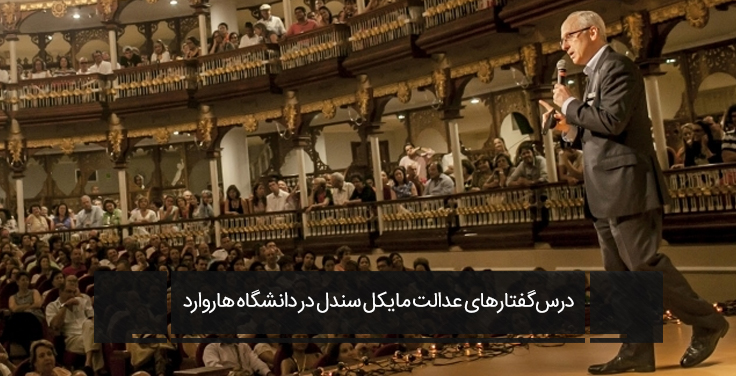
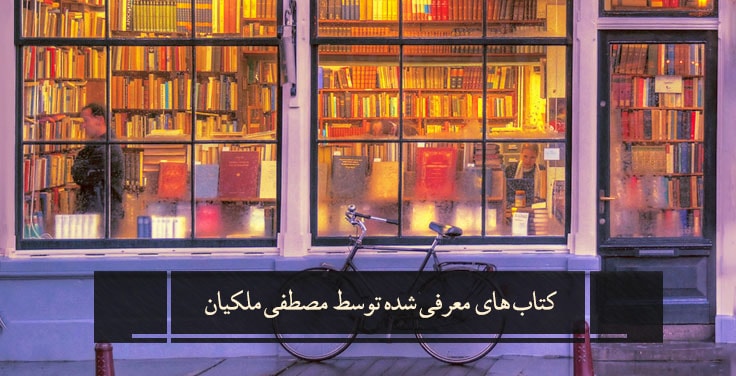
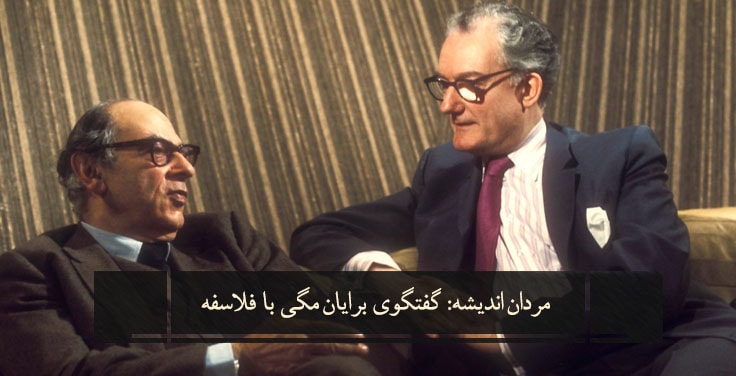
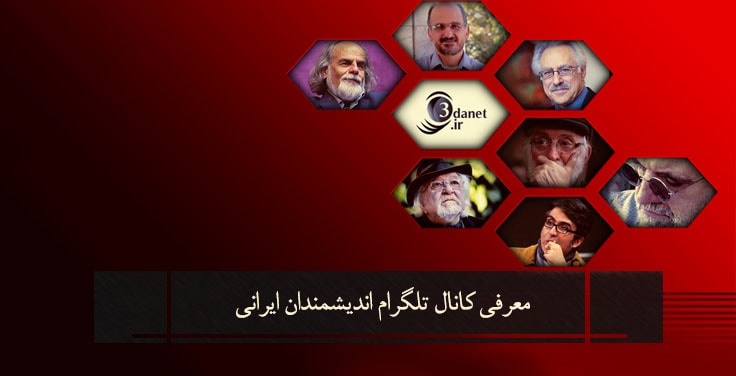
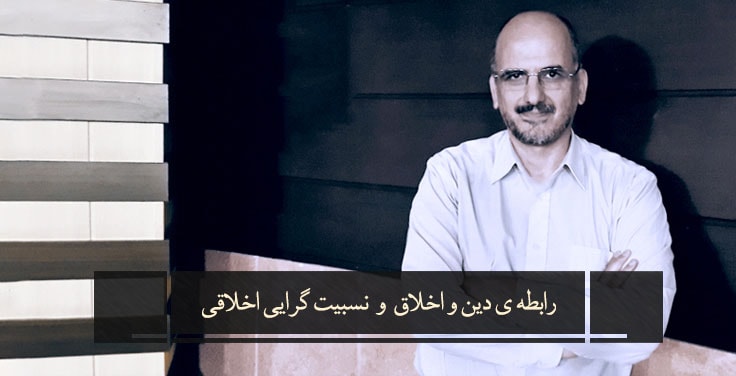
آقای حسن دباغ هم مانند پدر و برادر خود، راه تأیید حامیت دانشگاهیی جهانی را برگزیدند. این در متن از هم دستی مردم غزه با حماس سخن گفته اند! آن هم بدون اشاره به قصابی مردم به وسیله the Establishment قدرت جهانی حاکم یهودی در طول هفتاد سال قساوت!
ایشان از حقوق بشر به عنوان داشته ای انسانی نام برده اند. بله، رشوه حاکمان خطاکار professionalism دانشگاه به عنوان محل درآمد و جلب توجه و به دست آوردن social acceptance و place جاه و مقام به خودفروخته دانشگاهی اعطای جایگاه و شأن است. دانشگاهی حقوق بشر را تطهیر می کند و دانشگاه به تو توجه و اقبال اجتماعی undeserved می دهد.
conservatism دانشگاهی راهی که همه متظاهرین فلسفه می روند.
به ارزش داوری نوشته آقای دباغ نمی پردازم. به نکته دیگری اشاره می کنم. آیا ما متن را همانگونه که هست می خوانیم یا آنطور که دوست داریم. آیا متن را می خوانیم و قضاوت می کنیم یا صاحب متن را؟ آقای امیر خوش انصاف، آیا در متن “هم دستی مردم غزه با حماس” نتیجه گرفته شده؟
آیا به کارگیری چند اصطلاح انگیسی نوشته شما را معتبر کرده؟ آیا جای استدلال را گرفته یا صرفا خواسته اید بگویید بسیار مطلع و با سواد هستید. نه بزرگوار. انکه می نویسد و نظرش را صریح بیان می کند حتی اگر برخطا باشد خطر نیست. زیرا خود را در معرض نقد قرار داده. رویکرد سلبی امثال شما خطرناک است که نوشته را تحریف می کند، ذهن خوانی می کند، پیش داوری درباره شخصیت نویسنده می کند، با چند اصطلاح خواننده را فریب می دهد و تلاش دارد تا حرف خود را نه در قالب استدلال بلکه تنها با نفی سخن دیگری به کرسی بنشاند. بهتر بود شفاف و بی تکلف ابتدا سخن (و نه صاحب سخن) را نقد می کردید و نظر خود را نیز هرچند کوتاه در قالب چند خط بیان می کردید.
امیدی به تغییر جامعه فلسفی (اندیشمند، تحصیلکرده، نوگرای، امروزی، معتبر، همیشه شیک و قابل احترام، همیشه برحق و دارای نگاه همیشه منفی به خود و همیشه همراه hyperbole و تأیید مطلق هر چه غیر ایرانیاست) ایران و این که شاید روزی حتی یک نکته در نقد خود بپذیرند ندارم. اما این جا با این نویسنده میخواهم موافقت کنم. شاید لحظهای تردید در مورد تصویری idealizeشده از فلسفه غرب در ذهن ایجاد کنم.
Absolutely. I am not authentic because I apply Western Lexus, . Ottaboy! The American language does not carry weight.
In the same way, American thinking, American philosophy does not bring authenticity.
That’s exactly the point Iranians should open their eyes on. Philosophy is not reflective or reliable because it comes out of American publications.
Now, would you listen up to your own people without prejudice? or they should quote Kant and Rawls to get a hearing?
سانسور واقعیات ضد فلسفه ناموفق در تبیین کوچکترین nuances of meaning در جوامع south communities و ناتوانی اسایتد دانشگاه در مشاهده، درک و همچنین وحشت جامعه تحصیل کرده این کشورها از دست گذاردن بر نقد
دو phenomenon
تصویر کاذبی است که از اندیشه میراث دار یونانی در کشورهای غیر غربی ارائه شده و میشود.
۱٫سانسور
distortion تحریف تصویر فلسفه غرب در ایران و یا غلو کردن در مورد برخی جنبهها و مؤلفههای ضد
مسائلی خاص و مشهور در جهت پیش بردن professionalism منافع تحصیل کردههای غالبا ناموفق در دانشگاههای غرب را حتا برخی از خود متعصبین و advance gaurd ها و avante gaurds های مسخ شده دانشگاههی غربی ذکر کردهاند.
۲٫وحشت و ناتوانی در پیش تر رفتن از فلسفه موجود
نظر به میزان اعتبار این افراد در جهان مشخص می کند که تفاوت بنیادی میان تصویری که از خود در کشورهای مبدع نشان می دهند و تصوری که دانشجویان از آنان دارند و بی تأثیری که در سطح استاندارد و معمول یک اندیشمند در مقیاس جهانی است. توجه به افرادی که توان نگاشتن یک مقاله و یا رساله خود را نداشتند و بعضا ندارند در کشور ایران و تصوری که از آنان در ایران میشود بعضا مضحک است. دانشجوی ایرانی چه تصوری از فردی مانند یسیاری ازافراد به شهرت رسیده دارد و ایشان برای نوشتن دو خط original به چه کسانی که نباید رجوع کند.